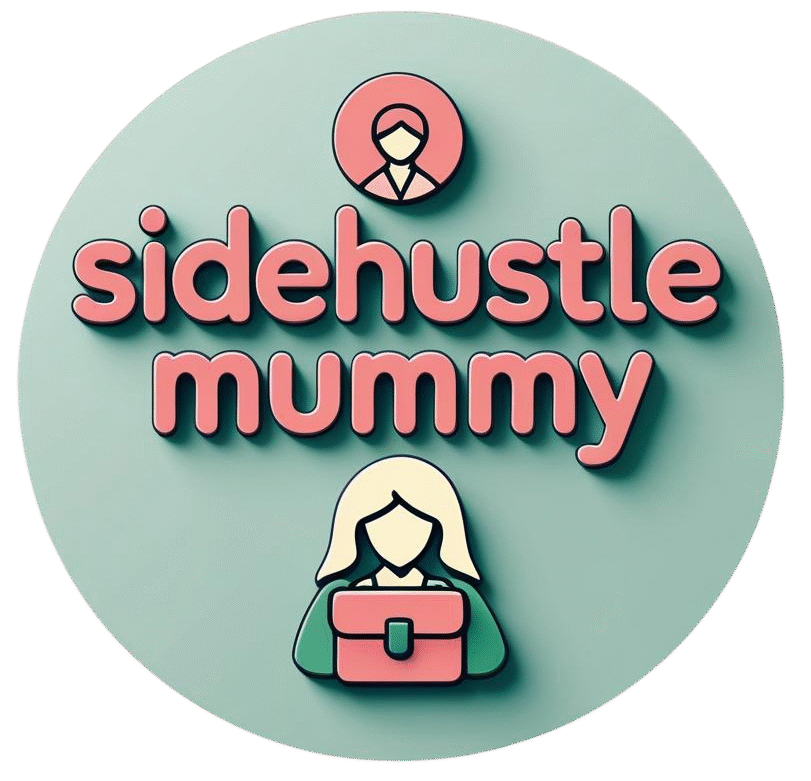This article was originally sourced from the document: Starting a Print-on-Demand Shop with No Inventory.docx
Starting a Print-on-Demand Shop with No Inventory
Introduction
Ever dreamed of owning your own product-based business—without the headache of managing inventory, renting warehouse space, or handling late-night packing and shipping? That’s the magic of print-on-demand (POD).
In today’s digital-first world, print-on-demand is one of the easiest and most affordable ways to start an online business, especially for moms, creatives, and side hustlers looking for a flexible income stream.
With zero upfront investment in products and no need to hold inventory, you can turn your ideas into real products—like T-shirts, mugs, journals, tote bags, wall art, and more—that ship directly to your customers.
In this beginner-friendly guide, I’ll walk you through:
What print-on-demand really is
Niche ideas that stand out
Best platforms to start on
Design tools (no design skills required!)
How to calculate profit margins
Let’s get your first product selling—without ever touching a box.
What is POD (Print-on-Demand)?
Print-on-demand is a fulfillment method where products are printed and shipped only when a customer places an order. That means:
No inventory to store
No upfront bulk orders
No shipping or packaging stress
You create the designs, and a POD partner prints and ships them for you. It’s that simple.
How It Works
You upload a design to a POD platform (like Printful or Redbubble).
A customer places an order for a product with your design.
The platform prints and ships the product directly to the customer.
You earn a profit from the sale (after base costs).
It’s the perfect hands-off model for beginners who want to dip into ecommerce without a warehouse, shipping labels, or startup capital.
Niche Ideas: What Should You Sell?
The key to POD success isn’t just great designs—it’s picking the right audience. That’s where niches come in.
Choosing a niche helps you:
Stand out in a crowded marketplace
Create designs that connect with your audience
Rank higher in search results
Build a loyal fan base
Here are some niche ideas to inspire you:
1. Mom Life & Parenting
Perfect for relatable quotes, funny toddler struggles, or “mom boss” vibes.
Examples:
“Running on coffee and chaos”
“Mommin’ ain’t easy”
“Nap time is my happy hour”
2. Pet Lovers
Target dog moms, cat dads, and exotic pet fans.
Examples:
“Proud rescue dog mom”
“My cat runs this house”
Custom pet portraits
3. Mental Health & Positivity
Affirmations, therapy humor, and wellness messages are trending.
Examples:
“Healing is not linear”
“Feeling my feelings”
“Protect your peace”
4. Teachers & Students
School-themed humor or gifts for teachers and students.
Examples:
“Teacher fuel” mugs
“Class of 2025” gear
“I survived virtual learning”
5. Faith & Spirituality
Scripture-inspired or spiritual quotes can build a dedicated audience.
Examples:
“Faith over fear”
“Grace wins every time”
Bible verse art prints
6. Small Business Owners
Support solopreneurs, Etsy sellers, and creatives.
Examples:
“CEO of my own life”
“Shop small, dream big”
“Etsy is my cardio”
7. Hobbies & Interests
Target gamers, readers, gardeners, or yoga lovers.
Examples:
“Plant lady is the new cat lady”
“Books > People”
“Namaste in bed”
💡 Tip: Combine niches to stand out. For example, “Pet-loving moms,” “Mental health teachers,” or “Christian entrepreneurs.”
Platforms to Use: Where to Sell Your POD Products
There are many platforms where you can launch your POD shop, each with its pros and cons. Let’s break down the most popular ones.
1. Printful (Monetization Target)
is a powerful POD service that integrates with ecommerce platforms like Shopify, Etsy, and WooCommerce. It offers high-quality printing, fast fulfillment, and custom branding options.
Pros:
No monthly fees
Wide product selection
White-label branding (your logo on packaging)
Ships worldwide
Best For: Serious sellers building their own brand
Monetize: (Insert affiliate link)
2. Redbubble (Monetization Target)
is a popular POD marketplace with a built-in customer base. No need to drive traffic—it brings customers to you.
Pros:
Easy to start
Built-in SEO traffic
Broad audience appeal
Lots of products (clothing, stickers, home decor)
Best For: Artists and beginners who want organic sales without marketing
Monetize: (Insert affiliate link)
3. Etsy + Printful Integration
Using Etsy with Printful lets you benefit from Etsy’s trusted brand while automating your fulfillment.
Pros:
Etsy’s loyal customer base
Easy Printful integration
No inventory required
Option for custom orders
Cons: 6.5% Etsy fee + Printful base cost
Best For: Custom products, holiday gifts, mom niches
💡 Tip: Add “Made to Order” and “Printed in the USA” in your listing descriptions.
4. TeePublic, Zazzle, and Society6
Other popular POD marketplaces worth exploring include:
TeePublic (similar to Redbubble, great for T-shirts)
Zazzle (custom invitations and home goods)
Society6 (great for artists and home decor)
Start with 1–2 platforms and expand once you get the hang of it.
Design Tools: You Don’t Need to Be an Artist
Here’s the good news: you don’t need to be a graphic designer to start a POD shop. Thanks to tools like Canva, anyone can create beautiful, sellable designs—even if you’re just starting out.
1. Canva (Monetization Target)
is my go-to design tool. It’s beginner-friendly, browser-based, and packed with free templates.
Why Moms Love It:
Drag-and-drop simplicity
Built-in fonts and illustrations
POD-friendly templates (T-shirts, mugs, etc.)
Free commercial license (with proper use)
🔗 (Insert affiliate link)
💡 Pro Tip: Upgrade to Canva Pro for access to premium fonts, background remover, and Magic Resize—perfect for repurposing designs across products.
2. Creative Market & Design Bundles
If you don’t want to design from scratch, browse pre-made illustrations and fonts on:
Make sure you purchase commercial-use licenses.
3. Kittl & Placeit
Other design platforms to explore:
Kittl: Great for vintage logos and merch templates
Placeit: Offers mockup generators for real-life product previews
Use these tools to bring your designs to life, even if you’re starting with zero design experience.
Profit Margins: How to Make Money with POD
Let’s talk numbers. How much can you actually make with print-on-demand?
How Pricing Works
Every product has a base cost (charged by the POD company). You set your retail price, and the difference is your profit.
Example with Printful:
T-shirt base cost: $12.95
Your sale price: $24.95
Profit: $12.00
Sounds good, right? But keep in mind:
Marketplace fees (Etsy takes 6.5%, Redbubble takes a cut too)
Shipping (sometimes added on top)
Transaction fees (PayPal, Stripe, etc.)
Sample Profit Margins (2025 Estimates)
💡 Pro Tip: You can boost profits by offering bundles, upsells, and limited editions (like holiday themes or custom orders).
Making Your First Sale
To actually make money, you’ll need eyeballs on your products. Here’s how:
Use SEO: Include keywords in your titles and tags (e.g., “Funny dog mom mug”).
Create mockups: Use Canva or Placeit to make your products look great.
Share on social media: Instagram, Pinterest, and TikTok are goldmines for visual products.
Collect emails: Build a simple email list with a freebie (like printable wall art) using ConvertKit or MailerLite.
Final Thoughts: Why You Should Start Today
Print-on-demand is more than just an online side hustle—it’s a gateway to creative freedom, flexible income, and long-term growth. You can start small, scale at your own pace, and create a brand that reflects you.
You don’t need inventory.
You don’t need design skills.
You just need a great idea—and the willingness to begin.
Your Starter Checklist
✅ Choose a niche
✅ Pick a platform (Printful, Redbubble, Etsy)
✅ Design 3–5 products with Canva
✅ Upload and optimize listings
✅ Promote your shop on social media
✅ Celebrate your first sale!
Ready to Get Started?
🔗 (affiliate link)
🔗 (affiliate link)
🔗 (affiliate link)
And don’t forget to grab my free “POD Starter Kit for Busy Moms”—with checklists, design prompts, and SEO tips!
👉 (Insert lead magnet)
Let me know if you’d like this turned into a downloadable checklist, lead magnet email series, or Pinterest graphics!


